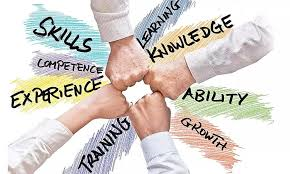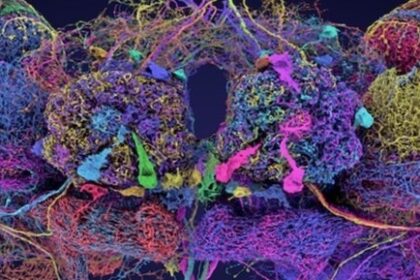Hi readers!
Do you know that Artificial Intelligence was founded on the assumption that human intelligence can be so precisely described which a machine can simulate? This “perceptions” forced people to consider AI: a danger to humanity because if implied un-administered, it would create mass unemployment. So, first a field was invented that can progress without humans involvement and now apprehensions are mounting to take care of unemployed humans and danger to humanity? Whether the first perception is worth considering or the last? No one can decide as confusion is all over.
Where lies the problem? Is it with human vision, which is different from revelation, foresight which is different from intuition or decision making which is based on prevision (predication about future events)?
Various forms of Artificial intelligence currently being used includes:
Knowledge representation and reasoning (KR&R)” which represents information about the words in the form that computers can utilized to solve complex tasks like having a dialog in a natural language,
Automated planning and scheduling that deals with realization of strategies, or action sequences for execution by intelligent agents, autonomous robots or unmanned vehicles,
Natural language processing (NLP) that deals with interactions between computer and human (natural) languages,
Machine learning (ML) which is a study of computer algorithms that improve automatically through experience and are used in email filtering and computer vision which otherwise is not possible.
Cognitive computing (CC) is simulation of human thoughts processes in a computerized model and involves self-learning systems that use data mining, pattern recognition and natural language processing to mimic the way the human brain works,
Robotic process automation (RPA) that enables organizations to configure computers software or a “bot” to capture and interpret existing application for processing a transection, manipulating data, triggering response, and communicating with other digital system.
It is such broad propagation of AI that warrants its conscious deployment and made it obligatory for all the stakeholders to address the consequences of its immense impact on society once the decision-making changes profoundly.
Perhaps these are some of the reasons that we: the Pakistani as a nation remains largely undecisive.
KPMG (Klynveld Peat Marwick Goerdeler), an international accounting firm) has suggested guiding pillars be considered for this purpose: the most important of which is:
preparation of employees in partnership with academia or other knowledge-leading and/or generating organizations to help create a program that can directly address the need for new skills and help employees adjust to the role of machines in their jobs.
This mission was initiated immediately after 1990 when the World Trade Organization (WTO) agreement becomes operational and triggered competition among all nations thus helping all the economies to be globalized, and all trades to be conducted according to international standards and marketing.
Countries like China, Japan and Korea responded to the changes through different economic and development strategies in higher education, investment in R&D and technological innovations consequently, around 2005, Asia and nearby pacific neighbors started impacting the globe through
Multilayered economies like China,
Industrialized/advanced or developed economies such as Japan, Australia, New Zealand, Singapore, and South Korea.,
Emerging economies such as Malaysia, and Thailand, India., and Developing economies such as Indonesia, Philippines, Vietnam, Pakistan, and Sri Lanka.
In some emerging economies, indicators showed considerable variations in higher education, investment in research and development (R&D) and technological innovations.
Why developing economies like Pakistan are still lagging ?
because they did not pay heed to the call of change in 1990 and did not invest in education and training of her employees which brought us to where we are standing now when nobody like to grant us an employment visa knowing fully well that we cannot do anything except begging which is our hall mark.
We were unable to use the experiences and success stories of Korea, Taiwan, and Singapore who have narrowed the gap between their economies and that of the world’s industrial leaders in a span of 30-40 years whereas China (now a global power) and India emerged as a significant player in the global competition in technology sectors in just one decade.
Most of the development in these countries took place after the East Asian financial crises of late 1990s. Role of science and technology and education in this development was so profound that countries like China, Japan, Taiwan and Korea compelled other countries in the region to understand what miracles brought these countries to where they are today. The financial crisis was a turning point which forced many Governments
to cut back public and private investment in R&D and redirect it to other sectors, reassess their role in producing and diffusing the national technological capabilities and develop national science-based innovation strategies to cope with high wages and limited home market: this is what we could not adopt.
Globalization radically transformed the way the S&T policies were previously formulated and practiced. Now the policies appear to be tightly integrated across institutions and organizational structures and are based on experiences the countries in the region have gone through.
Such a paradigm shift in the policies is being more strongly felt today than ever before for Pakistan as she is facing worst of her history’s financial crises but instead of following the food steps of countries in the region, we are instead, increasing pay and privileges of the corrupt judiciary, bureaucracy and politician. Despite all the bad omens, we have plenty of financial resources to spend on their luxuries which we need to cut fully to spend the resource in other sectors. At least we should develop different skills in our youth including expertise in AI and the English communication skill that may enable us to understand what the others are talking to us and for international visas/ This way, we may gain some respect in the committee of the nations? Think about that.
See you next week.
Take care, Bye.





